International Literary Festival 2025
Authors' Reading Month in Bratislava in July 2025
will include a number of exiled African authors:
I am bringing this to your attention in case you would like to come. The format is a reading and an interview with the author, the sessions start 7PM in an open-air venue in the historical city centre. In particular, see
Aaiun Nin (Angola) on July 15
Mohamedou Ould Slahi Houbeinin (Mauritania) on July 18
Sami Tchak (Togo) on July 25
Veronique Tadjo (Ivory Coast) on July 26
Touhfat Mouhtare (the Comorros) on July 28
Mohsen Mohamed (Mauritania) on July 29
AUSTROSCHWARZ - ein Film über Heimat, Identität und Repräsentation
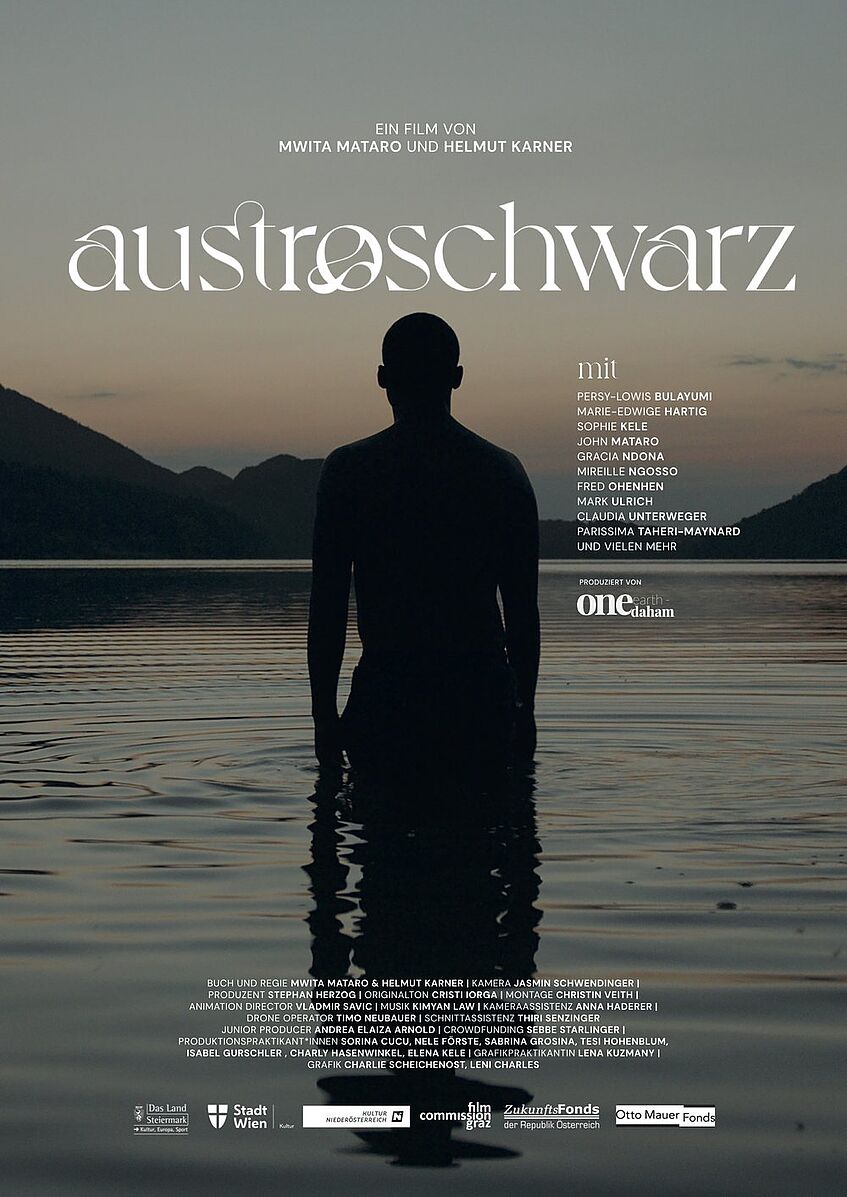
© Austroschwarz
AUSTROSCHWARZ - ein Film über Heimat, Identität und Repräsentation
Am Dienstag (20.05.2025) feierte AUSTROSCHWARZ eine umjubelte Premiere im Wiener Gartenbaukino – minutenlange Standing Ovation und tief bewegte Reaktionen machten den Abend zu einem besonderen Erlebnis.
Ab Freitag, 23.05.2025 ist der Film in diesen österreichischen Kinos zu sehen.
AUSTROSCHWARZ begleitet den Musiker Mwita Mataro auf einer filmischen Reise durch seine Heimat Österreich. In einer einzigartigen Verbindung aus Essay und spielerischer Animation erzählt er über Schwarz-Sein in Österreich, über Identität, Zusammenhalt und Kunst als Aktivismus. Der Film ermutigt, inspiriert und kommt genau zur richtigen Zeit.
Instagram AUSTROSCHWARZ
Instagram Filmladen Filmverleih
Trailer auf YouTube ansehen
Ein packender Film über Schwarzsein in Österreich. (Kurier)
Mwita Mataro ist ein brillant wacher Geist und ein ausgesprochen zugänglicher Mensch, der es schafft, das Publikum in seine Welt zu führen. (FM4)
Ausstellung: Kolonialismus am Fensterbrett
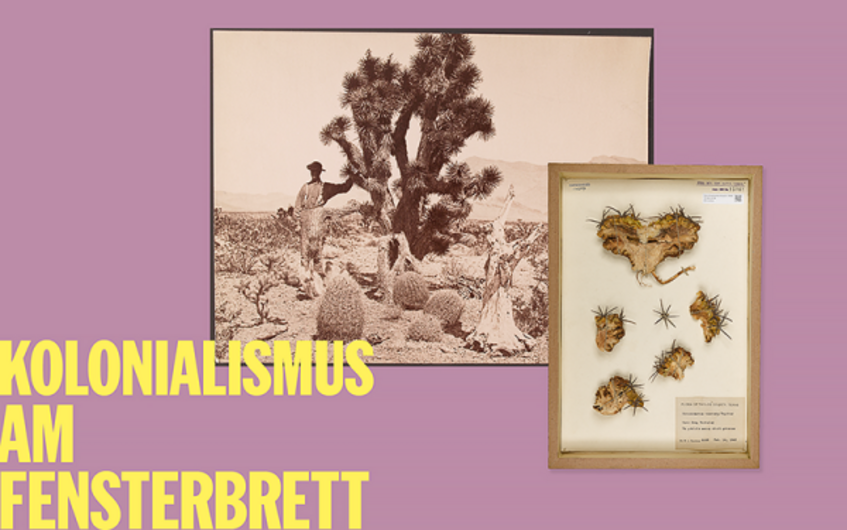
Ausstellung: Kolonialismus am Fensterbrett
Weltmuseum Wien, Neue Hofburg, Heldenplatz, 1010 Wien
Ausstellung: 28. Mai 2025 bis 25. Mai 2026
Die Ausstellung wirft einen Blick auf zehn unserer seit Jahrhunderten beliebtesten Zimmer- und Balkonpflanzen, deren natürlicher Lebensraum außerhalb Europas liegt. Diese Pflanzen haben eine ähnliche Geschichte wie unsere ethnografischen Sammlungen und gelangten teilweise gemeinsam mit den Objekten auf langen Schiffsreisen nach Europa und in die Museen.
Täglich außer Montag, 10 bis 18 Uhr
Dienstag, 10 bis 21 Uhr
Die Ausstellung im partizipativen Raum zam ist kostenlos zugänglich.
Radio Indaba – Aktuelle Neuigkeiten und Themen aus dem südlichen Afrika
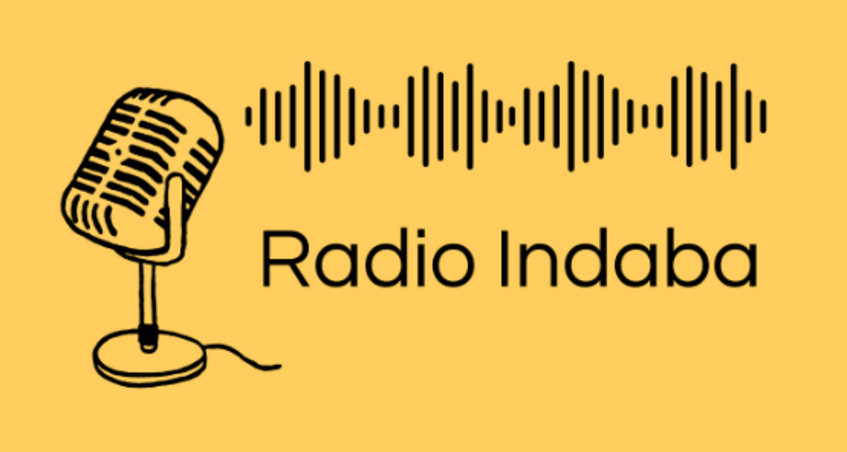
Radio Indaba – Aktuelle Neuigkeiten und Themen aus dem südlichen Afrika
Nächste Ausgabe: Donnerstag, 5.6.2025, 16.00 Uhr
Thema: Reise des Bundespräsidenten nach Südafrika: Über die Beziehungen zwischen Südafrika und Österreich / Zamrock - Die Wiederentdeckung sambischer Rockmusik / Aktuelle Nachrichten aus Namibia, Südafrika und Sambia
Indaba bedeutet übersetzt aus dem isiZulu 'Neuigkeit' oder 'Gespräch'. Radio Indaba richtet alle zwei Monate das Spotlight auf aktuelle Themen, Neuigkeiten und Entwicklungen im südlichen Afrika. Wir berichten darüber und sprechen mit beteiligten Akteurinnen und Expertinnen, die uns wertvolle Perspektiven geben, die in der medialen Berichterstattung sonst zu wenig oder gar keinen Platz bekommen.
Auf Radio Indaba möchten wir vielen verschiedenen Themen Platz geben: Von Politik und Gesellschaft über Kunst und Kultur bis hin zu Wirtschaft und Ökologie: Wir sprechen darüber. Auch die Beziehungen zwischen Österreich/Europa und dem südlichen Afrika betrachten wir auf dieser Sendereihe. Fragen der globalen Ungleichheit und globaler Gerechtigkeit sind stets Leitmotive unserer kritischen Betrachtung. Zu guter Letzt ist Radio Indaba auch eine Plattform für Geschichten von Menschen aus dem südlichen Afrika, die in Wien und Österreich leben.
Hinter Radio Indaba steht die SADOCC – das „Dokumentations- und Kooperationszentrum Südliches Afrika" in Wien. Sie ist als NGO die direkte Nachfolgeorganisation der österreichischen Anti-Apartheid-Bewegung und versteht sich in ihrem nunmehr 30-jährigen Bestehen als Solidaritätsorganisation mit dem südlichen Afrika. Die regelmäßigen Veranstaltungen der SADOCC sind auch Gegenstand der Berichterstattung auf Radio Indaba.
Wir möchten einen Beitrag zur Medienlandschaft leisten, der gängige mediale Narrative über Afrika aufbricht und eine vollständigere, fairere und realitätsnähere Perspektive auf diese Zusammenhänge bietet. Für Radio Indaba ist es ein großes Anliegen, nicht in erster Linie ÜBER das südliche Afrika zu berichten, sondern vor allem Stimmen AUS dem südlichen Afrika eine Plattform zu bieten, und ein differenzierteres Bild afrikanischer Zusammenhänge zu fördern, in dem auch positiven Entwicklungen der Raum gegeben wird, den sie eigentlich verdienen.
Nachhören: https://cba.media/podcast/radio-indaba
Nelson-Mandela-Tag

Nelson-Mandela-Tag
Freitag, 18. Juli 2025
17:00 Uhr
Bereits zum neunten Mal zelebriert SADOCC gemeinsam mit der Seestädter Community Nelson Mandela und sein Vermächtnis als Aktivist für Menschenrechte. Begleiten Sie uns auf eine Kulturwanderung und feiern Sie mit uns den internationalen Nelson Mandela Gedenktag am 18. Juli.
Auch heuer wird es ein spannendes Programm geben, u.a. mit Beiträgen von Künstler:innen wie Andy Mkosi, Adana Dicko, Saxophonist Allan Landgraf. Auch für das leibliche Wohl ist im Rahmen eines gemütlichen Ausklangs im Nachbar_innentreff Yella Yella gesorgt.
Der Eintritt ist wie immer frei.
Weitere Infos und Details entnehmen Sie dem Programm.
Chiala Afrika Festival in Graz
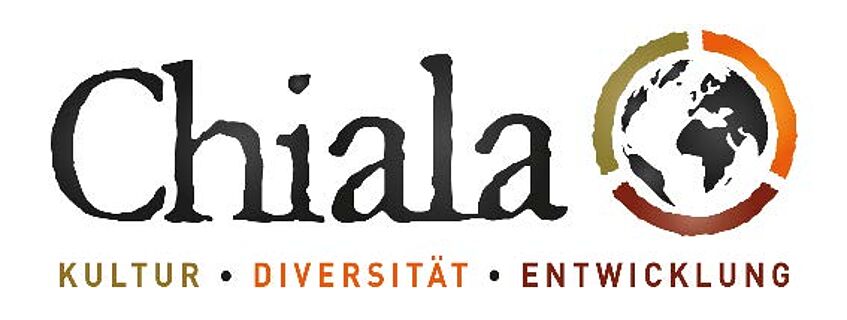
Chiala Afrika Festival in Graz
22.-23. August 2025
Das CHIALA Afrika Festival ist fixer Bestandteil des Grazer Kultursommers und wird unter Mitwirkung zahlreicher Partner:innen realisiert. Den Mittelpunkt dieser Veranstaltungen bildet das 3-tägige Open-Air-Festival im Augartenpark Graz, bei dem zahlreiche nationale und internationale Künstler:nnen die Besucher:innen mit ihrer Musik, ihrer Kreativität und ihrem handwerklichen Geschick in Form von Workshops und Performances begeistern. Und das unter freiem Himmel.
Die Aufgabe des Festivals besteht darin, eine Brücke zwischen Österreich und den vielfältigen Kulturen und Realitäten Afrikas zu bauen, durch Veranstaltungen Bilder zu vermitteln, welche Afrika, seine Menschen und die in Europa lebende afrikanische Diaspora differenziert und aus unterschiedlichen Blickwinkeln zu zeigen.
Mit zahlreichen Programmpunkten wird dem öffentlichen Raum ein Rahmen verliehen, der die Begegnung von Menschen, unabhängig ihrer geographischen und sozialen Herkunft, ihres Alters und Geschlechts ermöglicht und in dem ein gegenseitiger Austausch abseits von Klischees stattfinden kann.
Das Festivalgeschehen steht für Offenheit, Begegnung und Kommunikation als Grundvoraussetzungen des gesellschaftlichen Zusammenlebens.
Diversity Ball 2025 – TOGETHER WE RISE
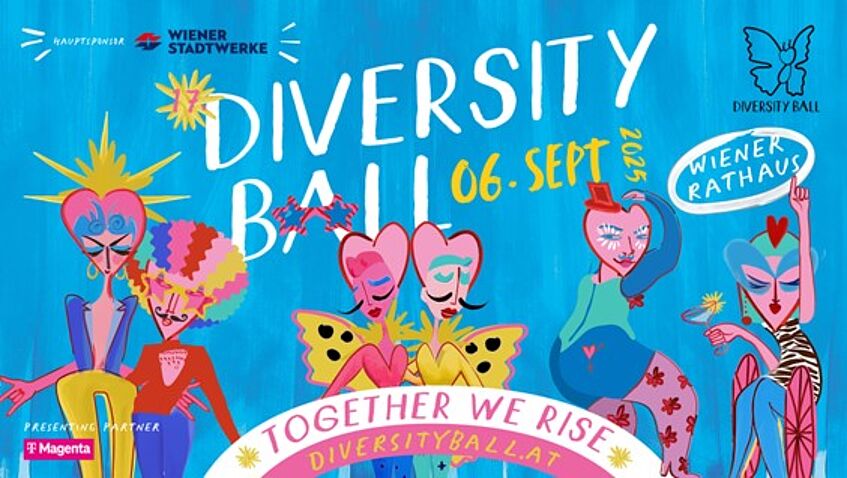
Diversity Ball 2025 – TOGETHER WE RISE
Samstag, 6. September 2025
Wiener Rathaus I Friedrich-Schmidt-Platz 1, 1010 Wien
Unter dem inspirierenden Motto TOGETHER WE RISE lädt der Diversity Ball 2025 zu einem besonderen Abend ein – voller Feierlichkeit, Gemeinschaft und gegenseitiger Wertschätzung.
Das diesjährige Motto steht für die Kraft der Vielfalt: Wenn Menschen mit unterschiedlichen Hintergründen und Lebensrealitäten zusammenkommen, entsteht etwas Großes.
Tagung: Frantz Fanon. Zum 100. Geburtstag
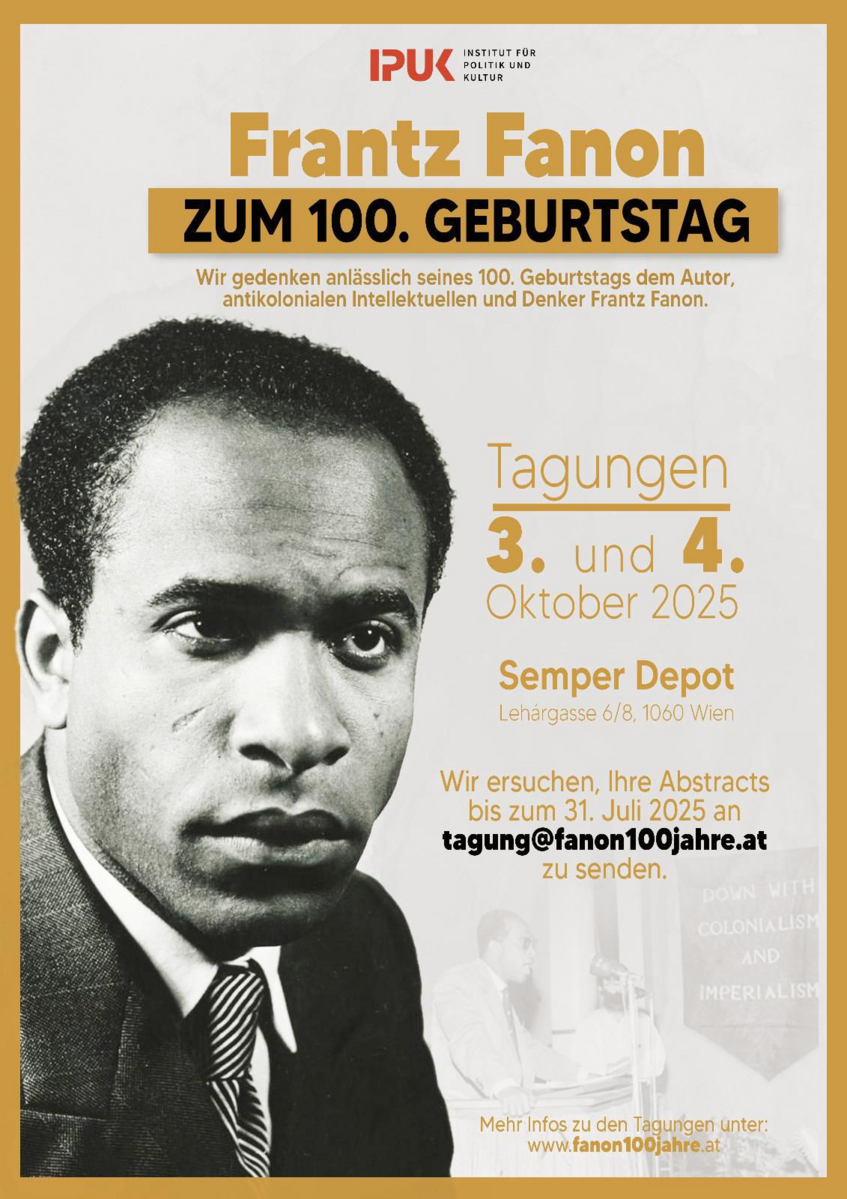
Tagung: Frantz Fanon. Zum 100. Geburtstag
3. und 4. Oktober 2025
Semper Depot, Lehargasse 6/8, 1060 Wien
Call for Papers
Frantz Fanon (1925–1961) hat mit seinen Werken die Rassismus- und Postkolonialismusforschung nachhaltig geprägt. Das Institut für Politik und Kultur (IPUK) möchte seinen Geburtstag zum Anlass nehmen, um den Menschen Fanon durch die Auseinandersetzung mit seiner Philosophie, seinem Aktivismus und seinem politischen Vermächtnis zu würdigen.
Wir sind besonders interessiert an Texten, die versuchen, die Frage nach Fanon’s Beitrag zur Analyse der aktuellen Weltlage zu beantworten. Welche Bedeutung hat sein Vermächtnis für die politische Situation und die Bewegungen in der heutigen globalen Welt?
Wir möchten uns auch mit bisher wenig untersuchten Themen wie Fanon’s Kunst- und Filmforschung befassen. Besonders willkommen sind Beiträge von Wissenschaftlerinnen und Wissenschaftlern, die unabhängig von ihrer Herkunft im deutschsprachigen Raum leben, aber auch von aktivistischen Intellektuellen außerhalb der akademischen Welt.
Wir begrüßen insbesondere fächerübergreifende Ansätze, einschließlich Kunst, Philosophie, Politik, Literatur und Aktivismus.
Hinweis: Ein Teil der Reise- und Hotelkosten unserer Gäste aus Deutschland und der Schweiz wird übernommen.
Interessenten werden gebeten, ihre Abstracts (300 Wörter) bis zum 31. Juli 2025 tagung@fanon100jahre.at zu senden.
Veranstalter: Institut für Politik und Kultur
Symposium: Mit Recht gegen Rassismus. Ressourcen für eine rassismuskritische Rechtswissenschaft und -praxis
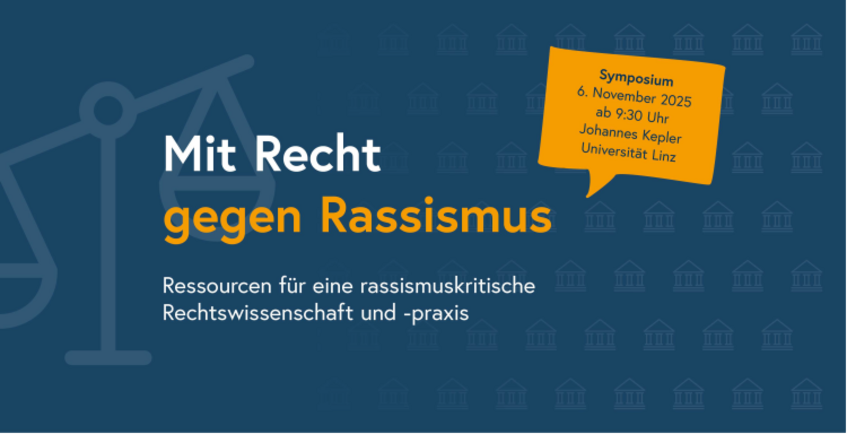
Symposium: Mit Recht gegen Rassismus. Ressourcen für eine rassismuskritische Rechtswissenschaft und -praxis
Donnerstag, 6. November 2025 |ab 9:30 Uhr
Johannes-Kepler-Universität Linz
Aktuelle Studien der Europäischen Grundrechteagentur zeigen, dass rassistische Diskriminierungen und Übergriffe in Europa in den letzten Jahren stark zugenommen haben. Rassistische Vorfälle werden von betroffenen Personen allerdings nur selten gemeldet; die Mehrheit der Betroffenen fürchtet, dass eine Meldung oder Anzeige folgenlos bleiben würde (FRA, Being Black in the EU, 2023 und Being Muslim in the EU, 2024).
Das Symposium schafft Raum für eine rassismuskritische Auseinandersetzung mit geltendem Recht, Rechtspraxis und Rechtswissenschaft. Bestehende theoretische Ansätze – wie die Critical Race Theory – werden aufgegriffen, um Rechtsgrundlagen, Institutionen, Praktiken sowie die dazugehörige Wissensproduktion kritisch auf ihre Rolle bei der Reproduktion oder Bekämpfung von Rassismen zu analysieren. Ziel ist es, Schutzpotentiale und Grenzen des Rechts auszuloten und Strategien sowie Methoden für ein wirksames, rassismuskritisches Arbeiten im Recht zu vermitteln und weiterzuentwickeln.
Die Veranstaltung richtet sich an Praktiker:innen und Wissenschaftler:innen. In Podien diskutieren Expert:innen aktuelle Herausforderungen und Ansätze zur Bekämpfung von Rassismus mit und im Recht. Das Angebot umfasst außerdem Workshops zu rassismuskritischen Grundlagen für Rechtsberufe und zu praxisorientierten Instrumenten für die Rechtsanwendung.
Folgende Themen stehen u.a. im Fokus:
Rassismuskritik an und mit den Grund- und Menschenrechten
Bekämpfung von Rassismus im Netz
Rassismuskritische Selbstreflexion für Institutionen
Strukturellen Rassismus beweisen
Legal Story Telling in Fällen von Rassismus
Speaker:innen
Eröffnung: Bundesministerin für Justiz Dr.in Anna Sporrer
Vortragende:
Prof. Dr. Cengiz Barskanmaz, Universität Fulda
Prof. Dr. Eddie Bruce-Jones, SOAS, University of London
Mag.a Azra Dizdarević, LL.M., BMWKMS
Mag. Hüseyin Güneş, MA, Gleichbehandlungsanwaltschaft
Mag.a Theresa Hammer, Klagsverband
Mag.a Marie-Edwige Hartig, JAAPO Linz
Mümtaz Karakurt, migrare Linz
Mag.a Mia Krieghofer, Universität Wien
Dr.in Doris Liebscher, LL.M.Eur., Humboldt Universität Berlin
Michaela Moua, Europäische Kommission
Mag.a Danijela Račić, Gleichbehandlungsanwaltschaft
Rik Reusen, Unia Belgien
Eddie Omar Rosenberg Khawaja, LL.M., Rechtsanwalt
Mag.a Désirée Sandanasamy, ZARA
Mag.a Rakhi Schmuck, ZARA
Die Liste der Vortragenden wird laufend ergänzt. Wir weisen Sie darauf hin, dass manche Speaker:innen ihren Input auf Englisch halten werden.
Programm und Anmeldung unter: https://www.gleichbehandlungsanwaltschaft.gv.at/aktuelles-und-services/aktuelleinformationen/symposium-mit-recht-gegen-rassismus.html
Die Veranstaltung wird in Kooperation zwischen der Gleichbehandlungsanwaltschaft, dem Institut für Legal Gender Studies der JKU Linz und dem Vienna Centre for Migration & Law durchgeführt.
Entwicklungstagung 2025
Das Thema 2025: Frieden, Gerechtigkeit und starke Institutionen
Fr., 21. bis So., 23. November 2025
Universität Innsbruck
Die Entwicklungstagung bietet als österreichweit größte Veranstaltung zu Entwicklungspolitik Raum für Debatte und Reflexion zu aktuellen Herausforderungen: Hier findet man engagierte Wissenschaft, Dialog zwischen Wissenschaft und Praxis, Reflexion zu brennenden Fragen der Entwicklungspolitik, Vernetzung von Politikfeldern und politische Bildung im weiteren Sinn. Auf den Entwicklungstagungen wollen wir, nach der Pädagogik Paulo Freires, einen Dialog auf Augenhöhe initiieren, statt eine Konferenz von Prominenz von oben monopolisiert vorzulegen. Wir verfolgen die Idee eines doppelten Dialogs, zwischen engagierter Wissenschaft und kritischer Zivilgesellschaft zum einen, und zwischen globalem Norden und Süden zum anderen.
Gewichtige Worte bilden das 16. Ziel der Sustainable Development Goals: Friede, Gerechtigkeit und starke Institutionen. Es formuliert eine große Vision, sind doch Friede und Gerechtigkeit alte Menschheitsträume. Als vorletztes Ziel führt es so viele Dimensionen wie kein anderes der 17 nachhaltigen Entwicklungsziele der Vereinten Nationen zusammen. Diese Dimensionen scheinen auf den ersten Blick nicht zusammenzupassen. Bei einer näheren Befassung wird allerdings klar, dass so gut wie alle anderen SDGs ohne inklusive, effektive und rechenschaftspflichtige Institutionen nicht erreichbar sind. Viele Ziele sind ohne Frieden hinfällig oder werden gar zunichte gemacht, während deren Einlösung einen großen Fortschritt für Gerechtigkeit bringen würde. Insofern ist das SDG 16 der zentrale Baustein der gesamten SDG-Architektur.
Programm und organisatorischen Informationen.
Zur Anmeldung geht es hier.
